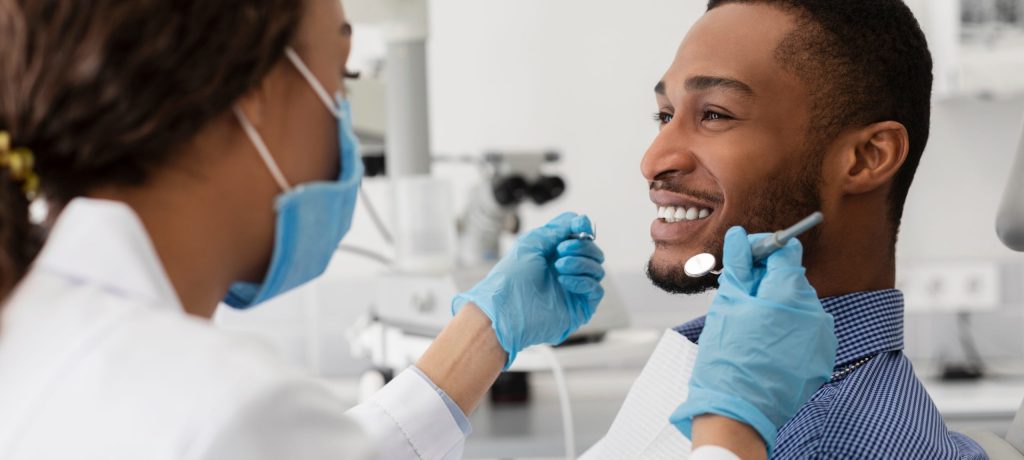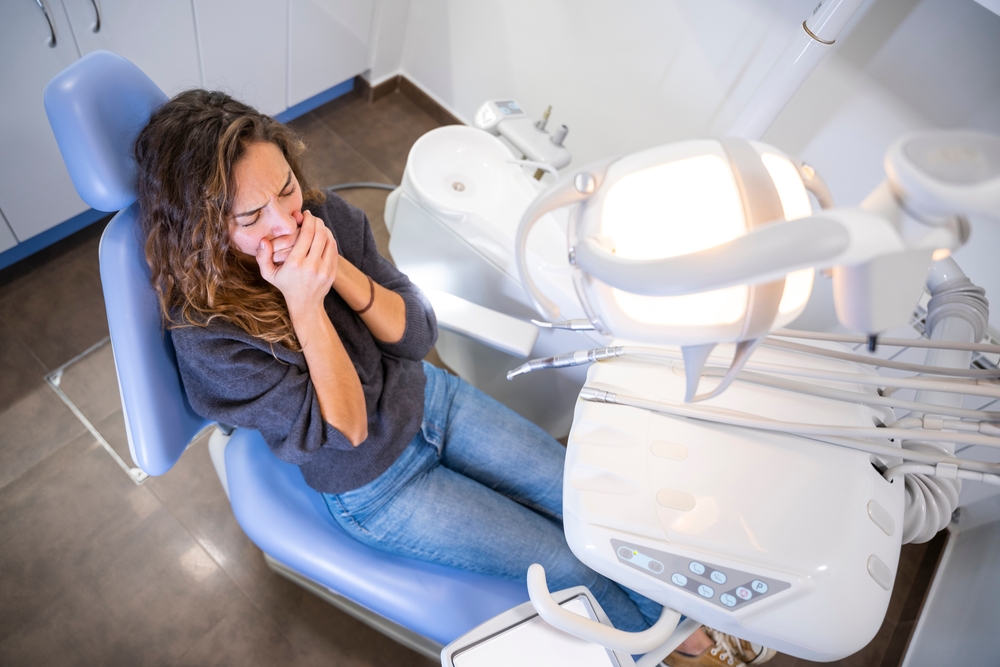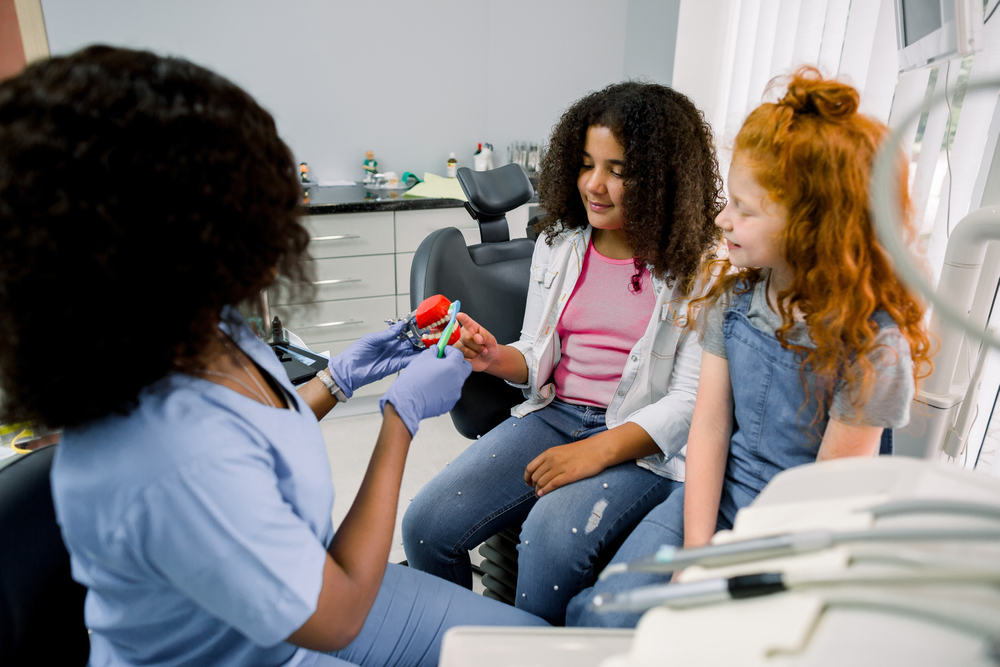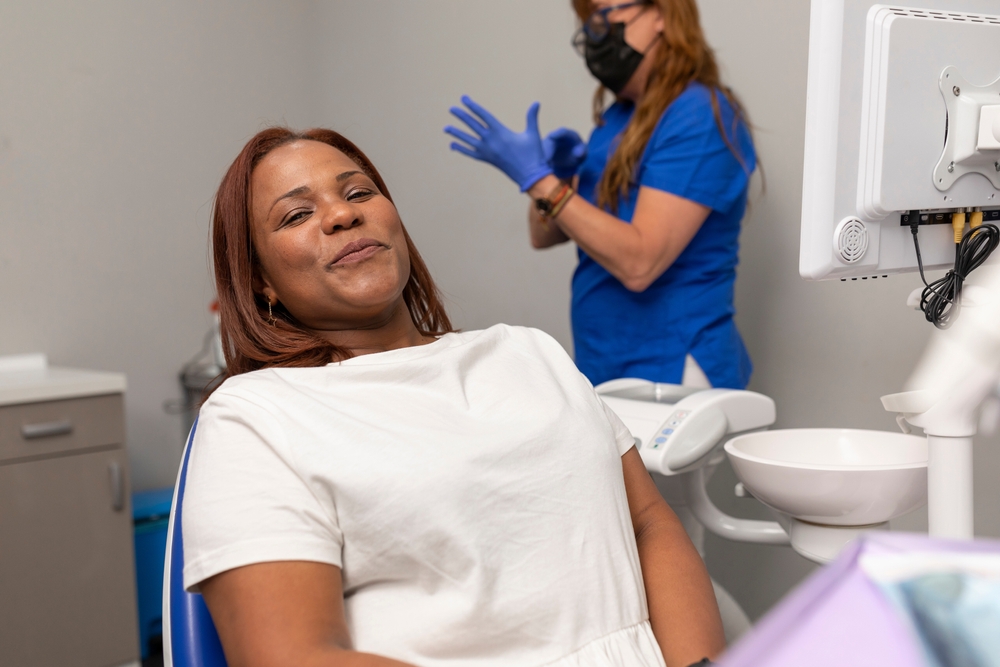Information Library
Start Reading

Tens of thousands of Americans dread going to the dentist. Knowing how to calm dental anxiety can help.
At Penn Dental Medicine (PDM), we use several dental anxiety-management techniques to help patients learn how to get over dental anxiety. Read on for information about what dental anxiety is, what causes it, and how to overcome it.

Dental anxiety is the unease, apprehension, stress, and fear some people experience when they go or think about going to dental offices.
Between 50% and 80% of U.S. adults feel some degree of anxiety about visiting the dentist. For some, anxiety rises so high, it becomes dental phobia—an irrational, overwhelming fear.
Dental anxiety is a problem because it can keep people from making and keeping regular dental appointments, or from seeking help in the early stages of oral health problems. As a result, people with dental anxiety are more likely to be in poor oral health.
Patients who neglect or delay treatment are also more likely to end up in dental offices for emergency services. Unpleasant and expensive emergency dental procedures may confirm their worst fears, beginning the vicious cycle of dental anxiety again.
Here are three common causes of dental anxiety:

Our ingrained fight-or-flight response may play a role in dental anxiety. Our mouths are sensitive, vulnerable, and vital for basic needs like eating, drinking, and breathing.
Avoidance is a natural response to discomfort or pain. Evolution may have hard-wired us to steer clear of situations like the dental chair. We’re not in control as someone else “invades” our personal space and puts their fingers in our mouths!
Individuals’ own genetic factors may also influence their fear of pain, including dental pain. Fortunately, dental anxiety-management techniques can work in spite of our evolutionary past or genetic makeup.
People who experience dental anxiety may remember the discomfort or pain of past dental appointments. If some previous procedure took too much time, caused too much pain, or mistakenly caused more damage, patients may feel reluctant to get back in the dental chair.
Some research suggests “when [a] traumatic dental episode occurs in childhood it has a lasting effect” on dental anxiety in adulthood. Regular, routine dental appointments from an early age can increase how many positive experiences children have. This foundation can help them feel less fearful about going to the dentist when a problem eventually occurs.
Have you seen Steve Martin playing the sadistic dentist in “Little Shop of Horrors”? Or Christopher Lee playing the strict dentist father of candymaker Willy Wonka in “Charlie and the Chocolate Factory”? Then you know popular culture doesn’t always portray dentists in a positive light.
Movies and TV shows that play dentists for comedy or horror may not directly cause dental anxiety. But they don’t reassure worried or fearful patients, either, especially younger ones. Dentists and other caregivers can talk with patients about these stereotypes, helping them distinguish fact from fiction.
If you’re one of the many people experiencing dental anxiety, here are some ways to overcome it.

Don’t be afraid to tell your dentist. You may feel embarrassed, but you won’t be the first or last patient who feels nervous or scared about treatment.
And feeling embarrassed is far preferable to jeopardizing your oral health by letting dental anxiety keep you from the care you need.
Once your dentist knows how you feel, they can tell you about dental anxiety-management techniques. Here at PDM, for example, we suggest patients who feel anxious:
When you go to dental appointments, bring someone you know and trust, who doesn’t share your anxiety. Depending on your procedure, they may be able to sit and hold your hand while the dentist works, or verbally encourage you during treatment.
If you’re experiencing extreme dental anxiety or dental phobia, sedation may be appropriate.
On the other hand, we’ve found, especially in our work with patients with disorders or disabilities, keeping patients awake during treatment can reduce anxiety. The more patients experience treatment, the more accustomed to it they become.
At PDM, we don’t sedate patients as a matter of course. We do use nitrous oxide for conscious sedation when necessary.
We want all PDM patients to feel comfortable. Creating a positive experience leads to your improved oral and overall health, and lessens your anxiety each time you return.
Don’t let dental anxiety keep you from having a healthier and happier mouth. Request an appointment with us online or call us at 215-898-8965.